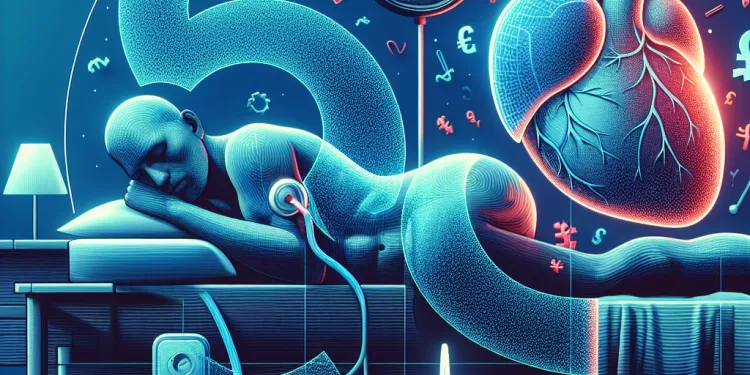
Find Help
More Items From Ergsy search
-
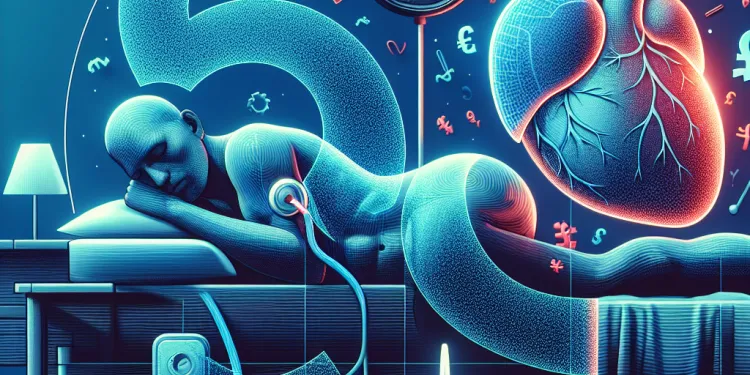
What is complex sleep apnea syndrome?
Relevance: 100%
-

What is complex sleep apnea syndrome?
Relevance: 99%
-
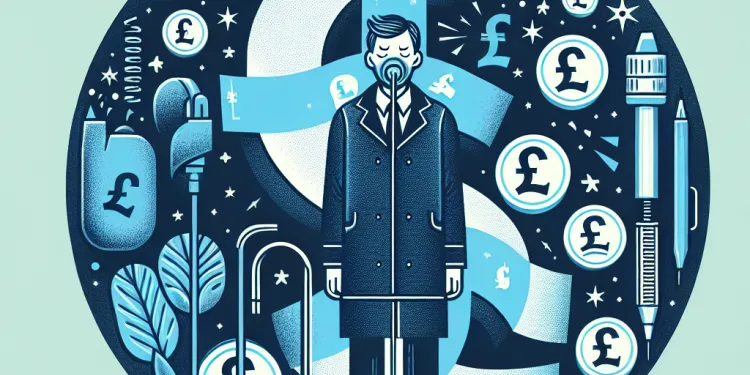
What is sleep apnoea?
Relevance: 68%
-

What is sleep apnea?
Relevance: 65%
-

What are the main types of sleep apnea?
Relevance: 63%
-
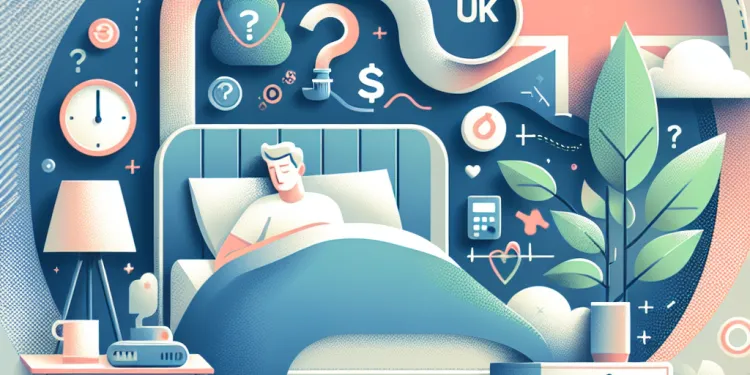
How common is sleep apnea?
Relevance: 61%
-
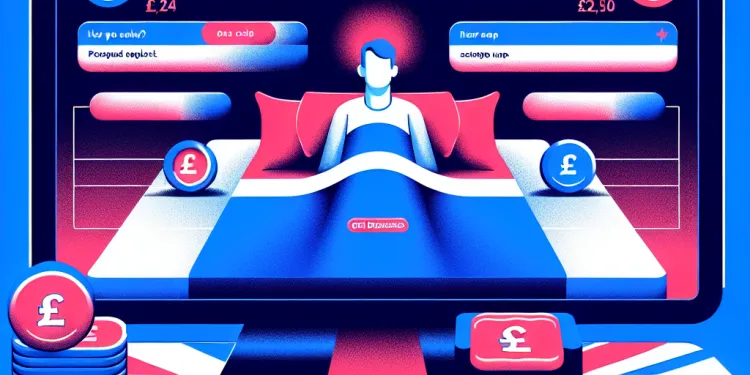
How is sleep apnea diagnosed?
Relevance: 56%
-
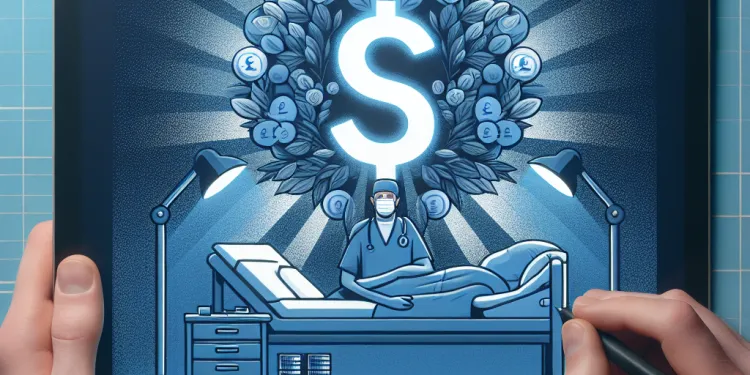
Can sleep apnea be cured?
Relevance: 56%
-

Does sleep apnea occur only in adults?
Relevance: 55%
-
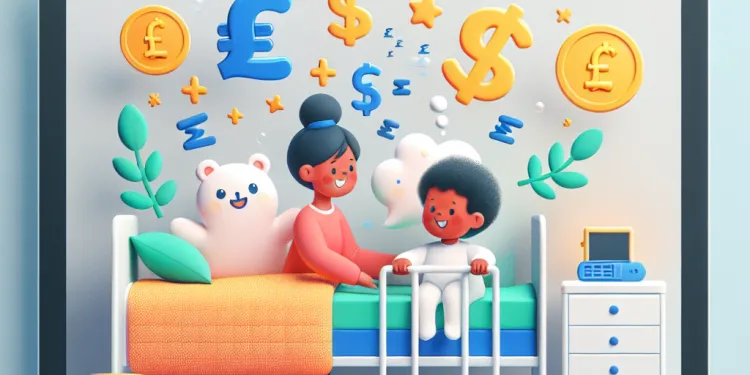
Can children have sleep apnea?
Relevance: 54%
-
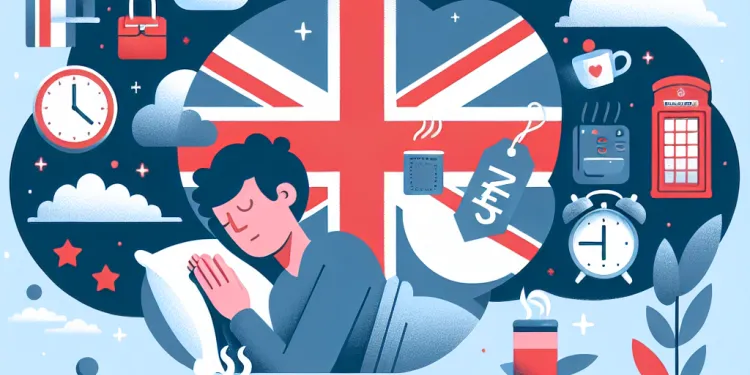
What are common symptoms of sleep apnea?
Relevance: 54%
-

Why is sleep apnea dangerous?
Relevance: 54%
-

What causes obstructive sleep apnea?
Relevance: 53%
-
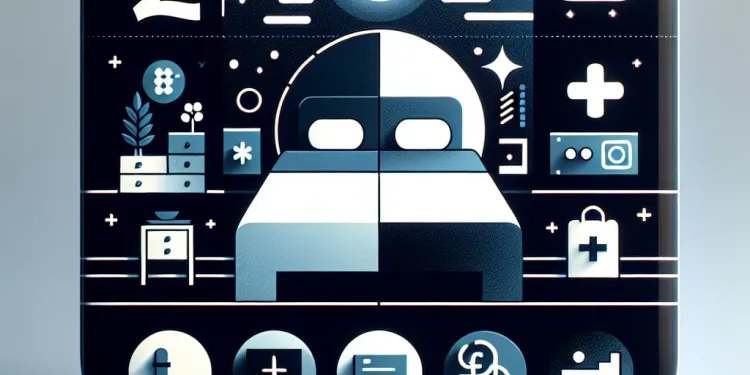
What treatments are available for sleep apnea?
Relevance: 53%
-
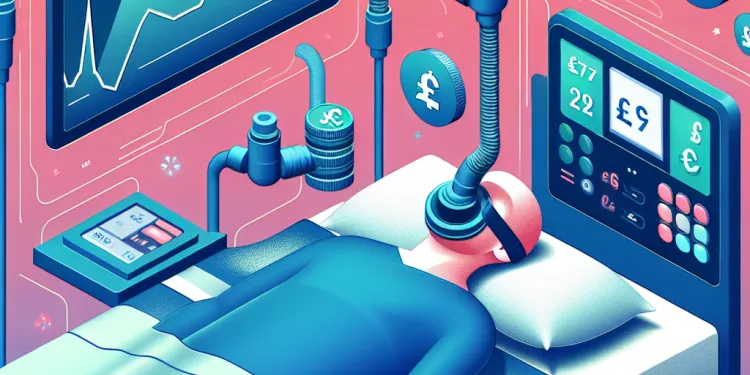
Is CPAP the only treatment for sleep apnea?
Relevance: 52%
-
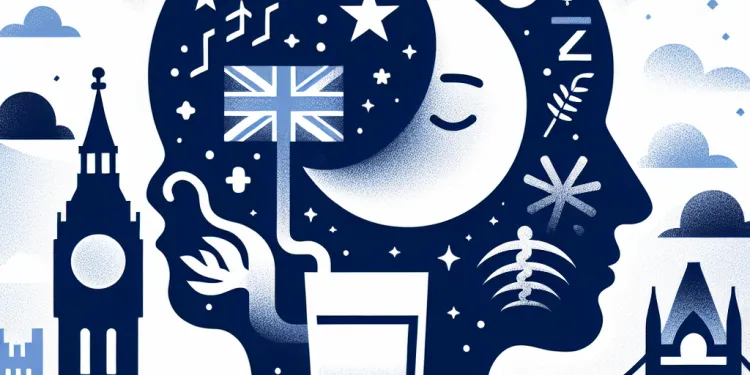
Can alcohol worsen sleep apnea?
Relevance: 52%
-

What are risk factors for developing sleep apnea?
Relevance: 52%
-
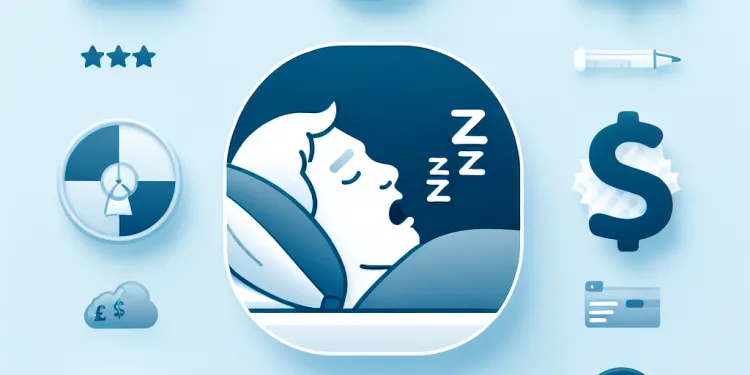
Is snoring always a sign of sleep apnea?
Relevance: 51%
-

Can weight loss improve sleep apnea?
Relevance: 50%
-

What should I do if I suspect I have sleep apnea?
Relevance: 50%
-
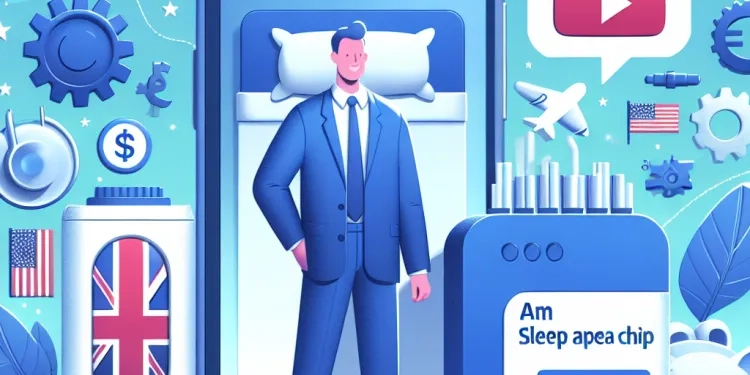
Am I eligible to try the new sleep apnea chip?
Relevance: 49%
-

How does the new Sleep Apnea Chip work?
Relevance: 48%
-

What lifestyle changes can help manage sleep apnea?
Relevance: 47%
-
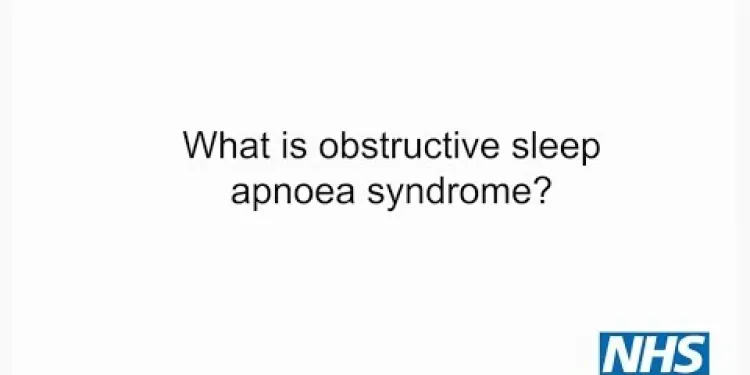
Introduction to obstructive sleep apnoea
Relevance: 40%
-
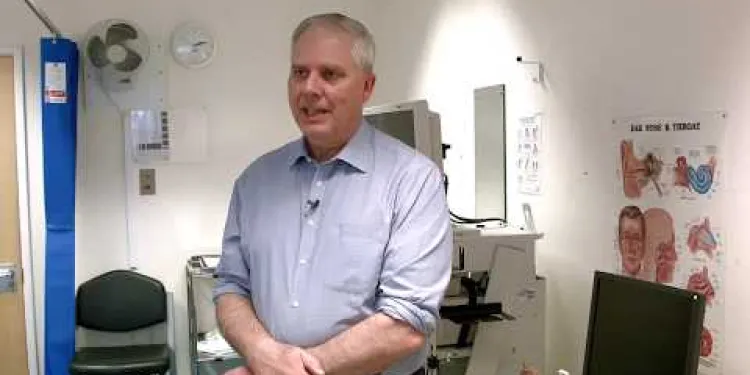
Evidence-Based Interventions: snoring surgery in the absence of Obstructive Sleep Apnoea (OSA)
Relevance: 37%
-

Can baby sleep pillows prevent flat head syndrome?
Relevance: 36%
-
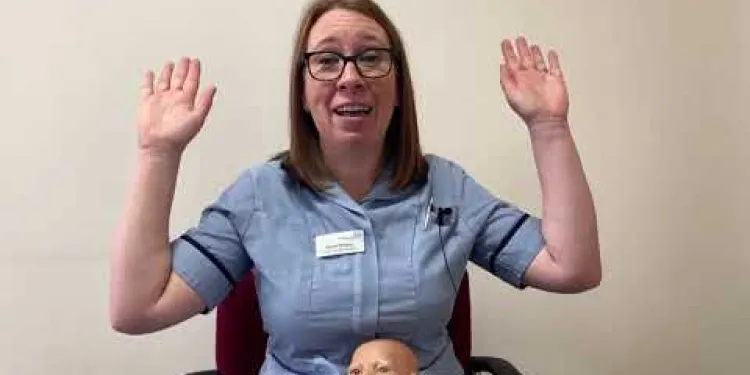
Safe sleeping and reducing the risk of Sudden Infant Death Syndrome (SIDS)
Relevance: 32%
-
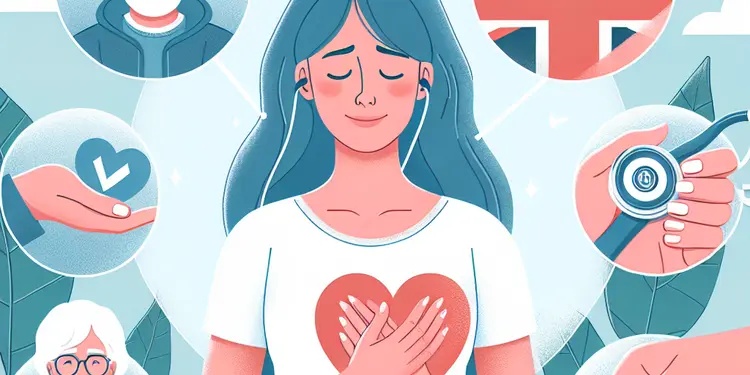
Is chronic fatigue syndrome contagious?
Relevance: 31%
-

Are baby sleep pillows safe?
Relevance: 29%
-

What is chronic fatigue syndrome?
Relevance: 29%
-
What is sleep apnoea?
Relevance: 28%
-

What are the risks associated with baby sleep pillows?
Relevance: 28%
-
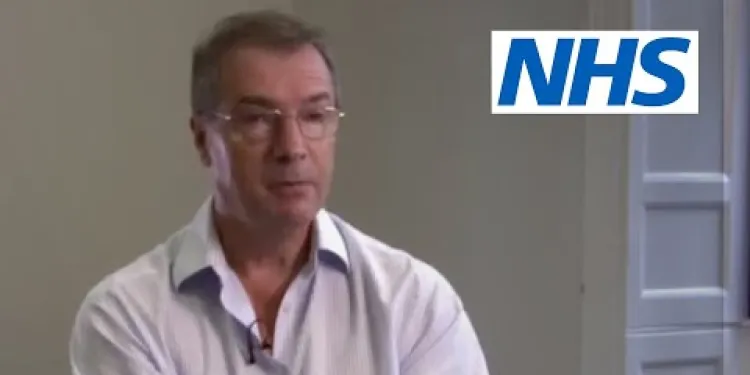
Prader-Willi Syndrome | NHS
Relevance: 28%
-

Who is at risk of developing chronic fatigue syndrome?
Relevance: 27%
-

What causes chronic fatigue syndrome?
Relevance: 27%
-

Are there any benefits to using baby sleep pillows?
Relevance: 27%
-

Is it okay to use a baby sleep positioner?
Relevance: 27%
-
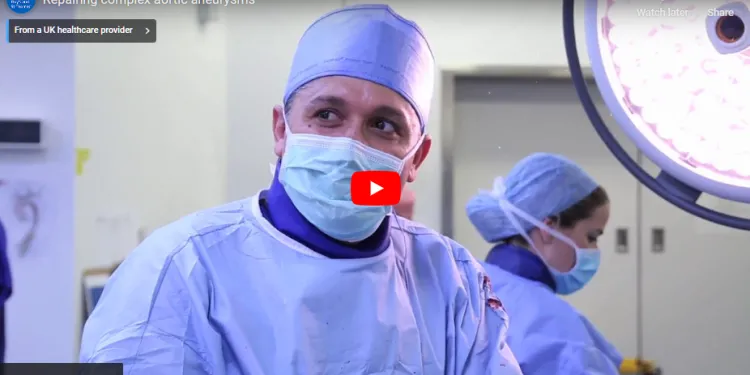
Repairing complex aortic aneurysm
Relevance: 27%
-

Is chronic fatigue syndrome a mental illness?
Relevance: 26%
-

What is Cushing's syndrome?
Relevance: 26%
What is Complex Sleep Apnea Syndrome?
Complex sleep apnea syndrome, also known as treatment-emergent central sleep apnea, is a sleep disorder that combines elements of both obstructive sleep apnea and central sleep apnea. This condition can complicate the diagnosis and treatment of sleep apnea, as it manifests features of both primary types, necessitating a comprehensive approach to management.
Understanding Sleep Apnea
To appreciate what complex sleep apnea syndrome entails, it is important to first understand the two primary types of sleep apnea. Obstructive sleep apnea (OSA) occurs when the upper airway becomes partially or completely blocked during sleep, leading to pauses in breathing. This can result in poor sleep quality and various health consequences. Central sleep apnea (CSA), on the other hand, involves a failure of the brain to transmit signals to the muscles responsible for breathing, causing periods of no respiratory effort during sleep.
Characteristics of Complex Sleep Apnea Syndrome
Complex sleep apnea syndrome is identified in patients who initially have OSA and develop central sleep apnea upon the initiation of continuous positive airway pressure (CPAP) therapy. These patients exhibit characteristics of both OSA and CSA, hence the term "complex" or "mixed" sleep apnea. This dual manifestation can make treatment more challenging, as adjustments to therapy are often required.
Diagnosis
The diagnosis of complex sleep apnea syndrome is typically made during a sleep study, known as polysomnography. During this study, various physiological parameters are monitored while the patient is asleep, including brain activity, eye movements, heart rate, and respiratory effort. If a patient who is receiving CPAP therapy continues to exhibit central apneic events, a diagnosis of complex sleep apnea syndrome may be considered.
Treatment Options
Treating complex sleep apnea syndrome often involves a multifaceted approach. Initially, CPAP therapy may be adjusted to determine if optimizing pressure settings can alleviate central events. If central apneas persist, adaptive servo-ventilation (ASV), a more sophisticated form of positive airway pressure, may be employed. ASV adjusts pressure on a breath-by-breath basis, potentially reducing central apneic episodes. Additional interventions could involve addressing underlying medical conditions or modifying factors such as sleep position.
Impact and Importance of Management
Complex sleep apnea syndrome can significantly impact a patient’s quality of life if left untreated, leading to symptoms such as excessive daytime sleepiness, poor concentration, and increased risk of cardiovascular issues. Therefore, effective management is crucial not only for symptom relief but also for long-term health. Understanding and recognising complex sleep apnea syndrome is essential for healthcare professionals, ensuring patients receive comprehensive care tailored to their unique needs.
What is Complex Sleep Apnea Syndrome?
Complex sleep apnea syndrome is a sleep problem. It has two parts: obstructive sleep apnea and central sleep apnea. This makes it harder to find and treat. People with this syndrome need special care.
Understanding Sleep Apnea
There are two main types of sleep apnea. The first is obstructive sleep apnea (OSA). This happens when your throat is blocked during sleep, and you stop breathing for a short time. This can make you sleep badly and feel tired. The second type is central sleep apnea (CSA). This is when the brain does not send the right signals to the body to breathe. These pauses in breathing happen without any blockages.
Characteristics of Complex Sleep Apnea Syndrome
Complex sleep apnea syndrome happens when a person starts with OSA and then gets central sleep apnea when using a CPAP machine. CPAP helps keep the airway open with air pressure. People with this syndrome have signs of both OSA and CSA, which makes it harder to treat.
Diagnosis
Doctors use a sleep study called polysomnography to find complex sleep apnea syndrome. During this test, doctors look at things like brain activity and breathing while you sleep. If you use a CPAP and still have central apneas, doctors might say you have complex sleep apnea syndrome.
Treatment Options
Treating complex sleep apnea syndrome can be complicated. First, doctors might change your CPAP settings to see if it helps. If not, they might use adaptive servo-ventilation (ASV). ASV changes the pressure of air to help you breathe better. Other treatments could help too. This includes fixing other health problems or changing how you sleep.
Impact and Importance of Management
Without treatment, complex sleep apnea syndrome can make you very tired and unable to focus. It can also lead to heart problems. Getting the right treatment is important. It helps you feel better and protects your health. It's important for doctors to know about this syndrome so they can give the best care.
Frequently Asked Questions
What is complex sleep apnea syndrome?
Complex sleep apnea syndrome is a form of sleep apnea where patients exhibit symptoms of both obstructive sleep apnea (OSA) and central sleep apnea (CSA).
What are the symptoms of complex sleep apnea syndrome?
Symptoms can include loud snoring, episodes of breathing cessation during sleep, abrupt awakenings with shortness of breath, insomnia, excessive daytime sleepiness, difficulty concentrating, and morning headaches.
How is complex sleep apnea syndrome diagnosed?
Diagnosis is typically made through a sleep study called polysomnography, where both obstructive and central events are observed.
What causes complex sleep apnea syndrome?
The exact cause is not fully understood, but it may involve a combination of anatomical and neurological factors influencing both obstructive and central apneas.
How is complex sleep apnea syndrome different from obstructive sleep apnea?
Unlike obstructive sleep apnea, which is mainly due to physical blockages of the airway, complex sleep apnea includes central apneas where there is a lack of respiratory effort during pauses in breathing.
Is complex sleep apnea syndrome common?
Complex sleep apnea syndrome is less common than obstructive sleep apnea and tends to be identified when patients being treated for obstructive sleep apnea display central apneas as well.
Can complex sleep apnea syndrome be treated?
Yes, treatment options include CPAP or adaptive servo-ventilation (ASV) devices, lifestyle changes, and in some cases, medications or surgery.
What is the role of CPAP in treating complex sleep apnea syndrome?
CPAP (Continuous Positive Airway Pressure) machines can help keep the airways open, but if central apneas persist, other treatments may be necessary.
What is adaptive servo-ventilation (ASV)?
ASV is a type of non-invasive ventilation specifically designed to treat complex sleep apnea by adjusting pressure to stabilize breathing patterns during sleep.
Who is at risk for developing complex sleep apnea syndrome?
Risk factors include being male, over 60 years old, having a history of heart failure, stroke, or using opioids.
Can weight loss improve complex sleep apnea syndrome?
Weight loss can potentially improve symptoms by reducing obstructive components, but it may not fully address central apneas.
What lifestyle changes can help manage complex sleep apnea syndrome?
Lifestyle changes can include losing weight, avoiding alcohol and sedatives, sleeping on one's side, and maintaining regular sleep patterns.
How does complex sleep apnea affect daily life?
It can lead to poor sleep quality, excessive daytime sleepiness, irritability, difficulty concentrating, and increased risk of cardiovascular problems.
Does complex sleep apnea require lifelong treatment?
Management often requires ongoing treatment, but the approach may evolve based on changes in symptoms or health conditions.
Can children have complex sleep apnea syndrome?
It is less common in children, but can occur, especially in those with medical conditions affecting both airway and neurological control.
What is the prognosis for someone with complex sleep apnea syndrome?
With proper diagnosis and management, many people can significantly improve their quality of life, although it may require ongoing treatment.
Can surgery be an option for complex sleep apnea syndrome?
Surgery might be considered for addressing obstructive elements, but it may not resolve central apneas; hence, it's used selectively.
Are there any medications for complex sleep apnea syndrome?
No specific medications exist for this syndrome, but medications treating underlying conditions (like heart failure) can help.
What should I do if I suspect I have complex sleep apnea syndrome?
Consult a healthcare professional or a sleep specialist for assessment and potential sleep study.
Is complex sleep apnea syndrome considered a serious condition?
Yes, if left untreated, it can lead to serious health complications, including cardiovascular diseases and impaired quality of life.
What is complex sleep apnea syndrome?
Complex sleep apnea syndrome is when a person has two types of sleep apnea. Sleep apnea is when you stop breathing for a short time while sleeping. The two types are obstructive and central.
Obstructive sleep apnea happens when the throat muscles relax too much and block the airway. Central sleep apnea happens when the brain does not send the right signals to the muscles that control breathing.
When someone has both types, it is called complex sleep apnea syndrome. It means they have trouble breathing while sleeping from more than one reason.
If you have trouble understanding this or anything else, you can ask someone you trust for help, or use a reading app that reads text out loud.
Complex sleep apnea syndrome is a sleep problem. People with this often show signs of two types of sleep apnea: obstructive sleep apnea (OSA) and central sleep apnea (CSA).
What are the signs of complex sleep apnea syndrome?
Complex sleep apnea syndrome can make sleeping hard. Here are signs to watch for:
- Trouble sleeping at night.
- Breathing stops and starts while sleeping.
- Feeling very tired during the day.
- Waking up with a dry mouth or sore throat.
- Having headaches in the morning.
If you think you have these signs, talk to a doctor. You can also use a diary to track your sleep and how you feel. This will help you and your doctor understand your sleep better.
Signs can be:
- Loud snoring during sleep.
- Stopping breathing while sleeping, but not on purpose.
- Waking up suddenly and feeling out of breath.
- Trouble sleeping at night.
- Feeling very sleepy during the day.
- Finding it hard to focus or think clearly.
- Having headaches in the morning.
These tools can help:
- Use a white noise machine to improve sleep.
- Try breathing exercises before bed.
- Keep a regular sleep schedule.
- Use reminders to help concentrate during the day.
How do doctors find out if someone has complex sleep apnea syndrome?
Doctors check for a condition called complex sleep apnea syndrome by doing special tests while you sleep.
One important test is called a sleep study. During a sleep study, doctors look at how well you breathe while you sleep. They use machines to watch your breathing and see if there are any problems.
If you think you might have sleep apnea, a doctor can help. You can ask someone you trust to go with you to the doctor. They can help you understand what the doctor says.
Doctors use a special test called a sleep study to find out if someone has a sleep problem. This test is named polysomnography. It checks if there are any problems during sleep.
Why do people get complex sleep apnea syndrome?
We don't know exactly why this happens. It might be because of how the body is made and how the brain works together. This can make it hard to breathe sometimes, called obstructive and central apneas.
How is complex sleep apnea syndrome different from obstructive sleep apnea?
Sleep apnea is when you have trouble breathing while sleeping.
There are two main types:
- Obstructive sleep apnea: Your throat muscles relax too much and block your airway. This makes it hard to breathe.
- Complex sleep apnea syndrome: This is when you have both obstructive sleep apnea and central sleep apnea. Central sleep apnea is when your brain does not send signals to breathe.
Tools like breathing machines (CPAP) can help. Talk to a doctor to learn more.
Some people stop breathing when they sleep. Obstructive sleep apnea happens because something is blocking the air. Complex sleep apnea is different. Sometimes, people just stop trying to breathe for a little while.
Is complex sleep apnea syndrome common?
Complex sleep apnea syndrome is not very common. Many people have never heard of it.
If you have trouble reading, you can:
- Ask someone you trust to read it with you.
- Use reading tools that read text out loud.
- Break the text into smaller parts and read it slowly.
Complex sleep apnea syndrome is not as common as obstructive sleep apnea. It is usually found when people being treated for obstructive sleep apnea also have central apneas.
If you need help understanding this, you can:
- Ask someone to read it with you.
- Use a dictionary to look up words you don't know.
- Listen to the text using a text-to-speech tool.
Can we help people with complex sleep apnea?
Yes, there are ways to help. People can use machines called CPAP or ASV to help them breathe. They can also try changing their daily habits. Sometimes, doctors might give medicine or do surgery to help.
How does CPAP help with complex sleep apnea syndrome?
CPAP is a machine that helps you breathe better when you sleep. It stands for Continuous Positive Airway Pressure.
If you have complex sleep apnea syndrome, your sleep is interrupted because your breathing stops and starts.
Using a CPAP machine can help keep your airways open, so you can have a good night's sleep.
Tools or tips to help:
- Ask your doctor how to use the CPAP machine.
- Make a routine to use the machine every night.
- Try relaxation techniques like deep breathing before bed.
CPAP machines help keep your breathing passages open. But if you still stop breathing, you might need other help.
What is adaptive servo-ventilation (ASV)?
Adaptive Servo-Ventilation, or ASV, is a machine that helps people breathe better when they sleep. It is used for people who have sleep apnea or other breathing problems. The machine watches how you breathe and helps your breathing stay steady.
If you find it hard to read, you can ask someone to read it aloud for you, or use an app that reads the text. It can also help to read slowly and take breaks if you need them.
ASV is a special machine that helps people breathe while they sleep. It helps people who have trouble sleeping because they start and stop breathing. The machine changes the air pressure to help them keep breathing normally while they are asleep.
Who can get complex sleep apnea syndrome?
Things that can raise your risk are:
- Being a man
- Being older than 60
- Having had heart problems
- Having had a stroke
- Taking certain strong medicines called opioids
Can losing weight help with complex sleep apnea?
Losing weight might help you breathe better at night. It can make some breathing problems smaller. But, it might not fix all kinds of breathing issues, like central apneas.
How can I change my daily habits to help with complex sleep apnea?
Here are some simple steps that might help:
- Go to bed and wake up at the same time every day.
- Try to relax before bedtime, like reading a book or taking a warm bath.
- Avoid caffeine and heavy meals before sleep.
- Keep your bedroom dark, quiet, and cool.
- Don't use electronic devices before bed.
- If you have a device, like a CPAP machine, use it as your doctor suggests.
It can also help to ask a family member or friend for support.
Making changes in how we live can help. Try these:
- Lose weight if you need to.
- Don't drink alcohol.
- Don't use sleep medicines.
- Sleep on your side.
- Go to bed and wake up at the same times every day.
Tools like alarms can remind you to go to bed. Pillows can help you stay on your side.
How does complex sleep apnea change your day-to-day life?
Complex sleep apnea can make people feel very tired during the day. They might find it hard to pay attention or remember things. This can make school or work difficult. They might also feel grumpy or sad.
There are ways to help people with complex sleep apnea. Using a special machine at night can make breathing easier. Going to bed at the same time every night can also help.
If you feel tired during the day, tell a doctor. They can help you feel better.
Bad sleep can make you feel tired during the day. It can make you grumpy and hard to focus. It can also cause heart problems.
Do people with complex sleep problems need treatment forever?
Some people have a hard time sleeping because of complex sleep apnea. This might need to be treated for a long time.
It is important to talk to a doctor to see what help you need. Sometimes, people use machines like CPAP to help them breathe better at night.
If you have questions or are worried, ask a doctor. They can give you the best advice for your health.
Sometimes, taking care of health needs treatment that happens again and again. The way doctors help can change if symptoms or health get better or worse.
Can children have a sleeping problem called complex sleep apnea syndrome?
Yes, kids can sometimes have a sleep problem called complex sleep apnea syndrome. It means they have trouble with their breathing when they sleep.
If you think your child has this, talk to a doctor. They can help. You can also try these things to help your child sleep better:
- Keep a bedtime routine. Do the same things each night before sleep.
- Make sure their bedroom is quiet and dark.
- Limit screen time before bed. Put away tablets and phones.
These steps can help with sleep. A doctor can give more advice if needed.
It doesn't happen often in kids, but it can. This is more likely if a child has health problems that affect breathing or the brain.
What can happen to someone with complex sleep apnea syndrome?
Complex sleep apnea syndrome is a kind of sleep problem. It means people stop and start breathing while sleeping. Doctors can help with treatment to make sleeping better.
Here are some things that can help:
- Use a special machine called CPAP. It helps you breathe when sleeping.
- Try to sleep on your side, not your back.
- Ask your doctor for more tips.
With the right help from doctors, many people can feel much better. They might need to keep taking medicine or seeing the doctor.
Can an operation help with complex sleep apnea syndrome?
People with sleep problems might have a special type called complex sleep apnea syndrome.
An operation, also called surgery, might help some people with this problem. It is important to talk to a doctor to know if surgery is a good choice.
Ask your doctor questions. They can help you understand.
You can use pictures, apps, or videos to learn more about sleep apnea and to help you explain it better to others.
Surgery can help fix blockages that cause breathing problems, but it might not help if the brain is not telling the body to breathe. Doctors only use surgery in some cases.
Is there medicine for complex sleep apnea syndrome?
People with complex sleep apnea syndrome have trouble sleeping because their breathing stops and starts. Doctors can help by giving special machines or sometimes medicine. It's important to talk to a doctor. They can tell you what might help you sleep better. Here are some things that might help:
- Ask a doctor about using a machine to help you breathe at night, like CPAP. This can make your sleep better.
- If you have questions, write them down and ask your doctor. This will help you remember what to say.
- You can bring someone you trust to the doctor's visit to help you understand.
- Make sure to follow the doctor's advice and tell them if something isn't working or if you feel different.
There are no special medicines just for this syndrome. But, you can take medicines for other health problems, like if your heart is not working well. These can help you feel better.
What to Do If You Think You Have Complex Sleep Apnea
Are you worried about your sleep? Here is what you can do:
- Tell a doctor. They can help check if you have sleep apnea.
- Keep a sleep diary. Write down how you sleep each night. Share this with your doctor.
- Ask someone you trust to watch you sleep. They can tell you if you stop breathing or snore loudly.
- Use technology, like a sleep app, to track your sleep patterns.
- Relax before bed. Try reading or listening to calm music.
Getting help is important. Talking to a medical expert can make sleeping easier.
Talk to a doctor or a sleep expert to find out more about your sleep. They might suggest a sleep study to learn more.
Is complex sleep apnea syndrome a serious problem?
Complex sleep apnea syndrome can be a serious problem. This is when a person has trouble breathing while they are asleep. It can make them very tired and affect their health.
If you think you have sleep apnea, it is important to talk to a doctor. They can help you with tests and treatments.
Here are some things that can help:
- Use a special machine that helps you breathe at night.
- Try to sleep on your side instead of your back.
- Keep a healthy weight and eat good foods.
- Talk to someone if you feel stressed or worried.
Yes, if you don't treat it, you might get really sick. It can make your heart and blood not work well. It can also make you feel not very good in life.
Useful Links
This website offers general information and is not a substitute for professional advice.
Always seek guidance from qualified professionals.
If you have any medical concerns or need urgent help, contact a healthcare professional or emergency services immediately.
- Ergsy carfully checks the information in the videos we provide here.
- Videos shown by Youtube after a video has completed, have NOT been reviewed by ERGSY.
- To view, click the arrow in centre of video.
- Most of the videos you find here will have subtitles and/or closed captions available.
- You may need to turn these on, and choose your preferred language.
- Go to the video you'd like to watch.
- If closed captions (CC) are available, settings will be visible on the bottom right of the video player.
- To turn on Captions, click settings .
- To turn off Captions, click settings again.
More Items From Ergsy search
-

What is complex sleep apnea syndrome?
Relevance: 100%
-

What is complex sleep apnea syndrome?
Relevance: 99%
-

What is sleep apnoea?
Relevance: 68%
-

What is sleep apnea?
Relevance: 65%
-

What are the main types of sleep apnea?
Relevance: 63%
-

How common is sleep apnea?
Relevance: 61%
-

How is sleep apnea diagnosed?
Relevance: 56%
-

Can sleep apnea be cured?
Relevance: 56%
-

Does sleep apnea occur only in adults?
Relevance: 55%
-

Can children have sleep apnea?
Relevance: 54%
-

What are common symptoms of sleep apnea?
Relevance: 54%
-

Why is sleep apnea dangerous?
Relevance: 54%
-

What causes obstructive sleep apnea?
Relevance: 53%
-

What treatments are available for sleep apnea?
Relevance: 53%
-

Is CPAP the only treatment for sleep apnea?
Relevance: 52%
-

Can alcohol worsen sleep apnea?
Relevance: 52%
-

What are risk factors for developing sleep apnea?
Relevance: 52%
-

Is snoring always a sign of sleep apnea?
Relevance: 51%
-

Can weight loss improve sleep apnea?
Relevance: 50%
-

What should I do if I suspect I have sleep apnea?
Relevance: 50%
-

Am I eligible to try the new sleep apnea chip?
Relevance: 49%
-

How does the new Sleep Apnea Chip work?
Relevance: 48%
-

What lifestyle changes can help manage sleep apnea?
Relevance: 47%
-

Introduction to obstructive sleep apnoea
Relevance: 40%
-

Evidence-Based Interventions: snoring surgery in the absence of Obstructive Sleep Apnoea (OSA)
Relevance: 37%
-

Can baby sleep pillows prevent flat head syndrome?
Relevance: 36%
-

Safe sleeping and reducing the risk of Sudden Infant Death Syndrome (SIDS)
Relevance: 32%
-

Is chronic fatigue syndrome contagious?
Relevance: 31%
-

Are baby sleep pillows safe?
Relevance: 29%
-

What is chronic fatigue syndrome?
Relevance: 29%
-
What is sleep apnoea?
Relevance: 28%
-

What are the risks associated with baby sleep pillows?
Relevance: 28%
-

Prader-Willi Syndrome | NHS
Relevance: 28%
-

Who is at risk of developing chronic fatigue syndrome?
Relevance: 27%
-

What causes chronic fatigue syndrome?
Relevance: 27%
-

Are there any benefits to using baby sleep pillows?
Relevance: 27%
-

Is it okay to use a baby sleep positioner?
Relevance: 27%
-

Repairing complex aortic aneurysm
Relevance: 27%
-

Is chronic fatigue syndrome a mental illness?
Relevance: 26%
-

What is Cushing's syndrome?
Relevance: 26%


